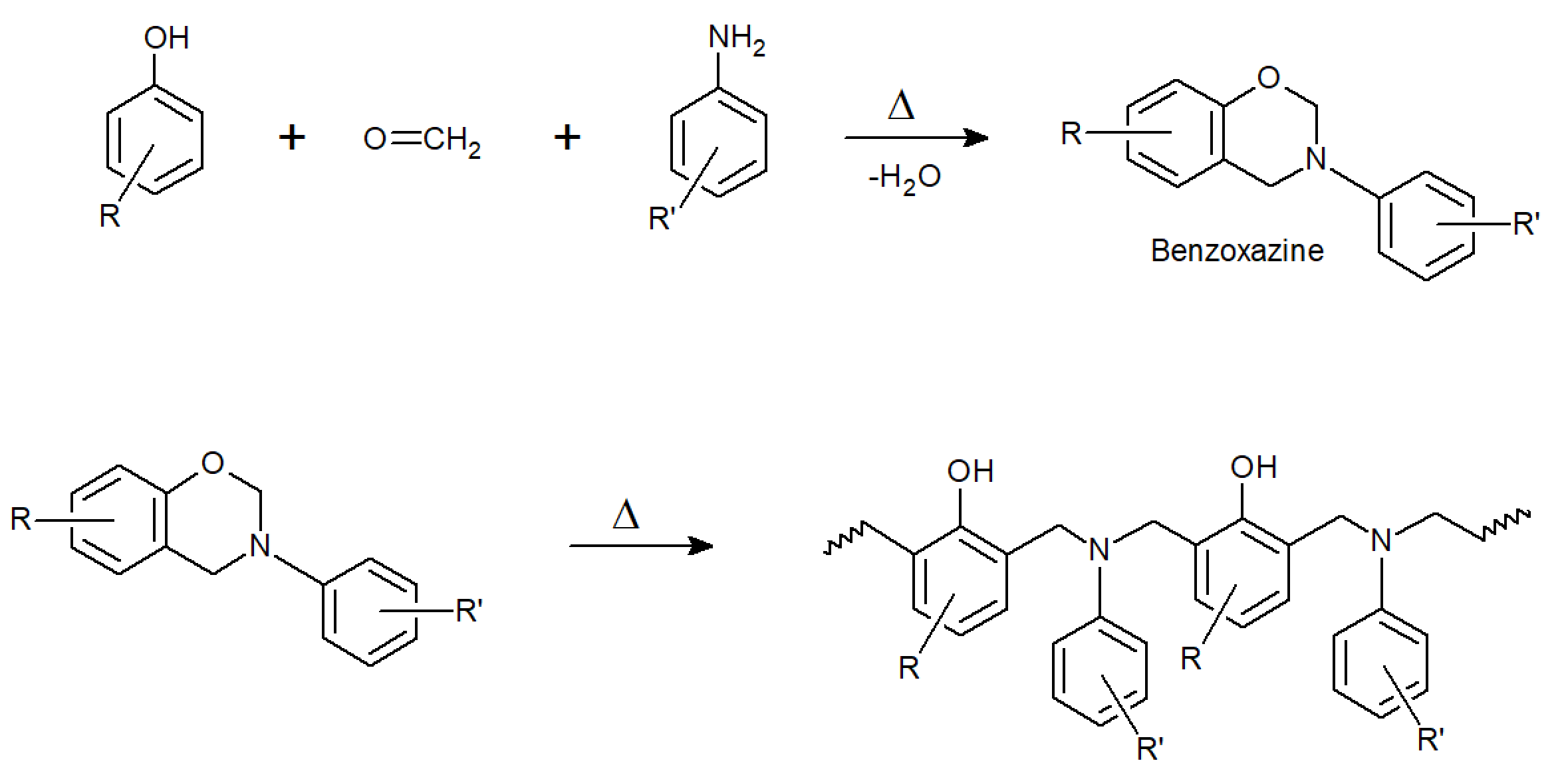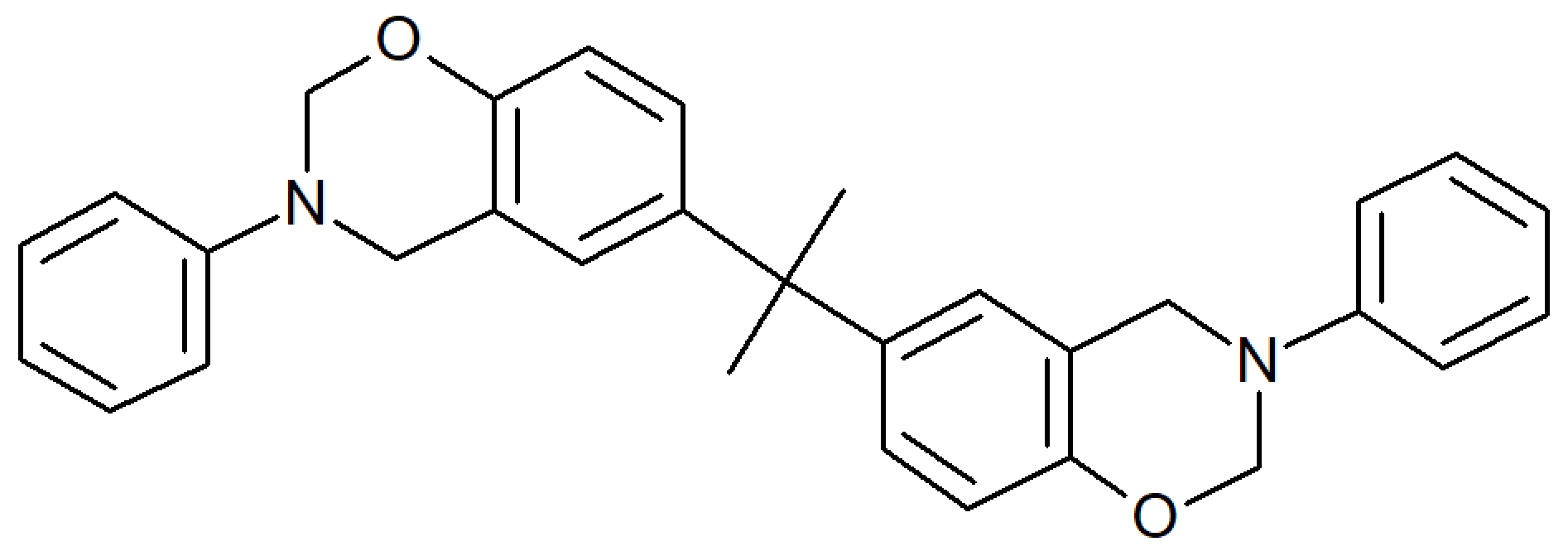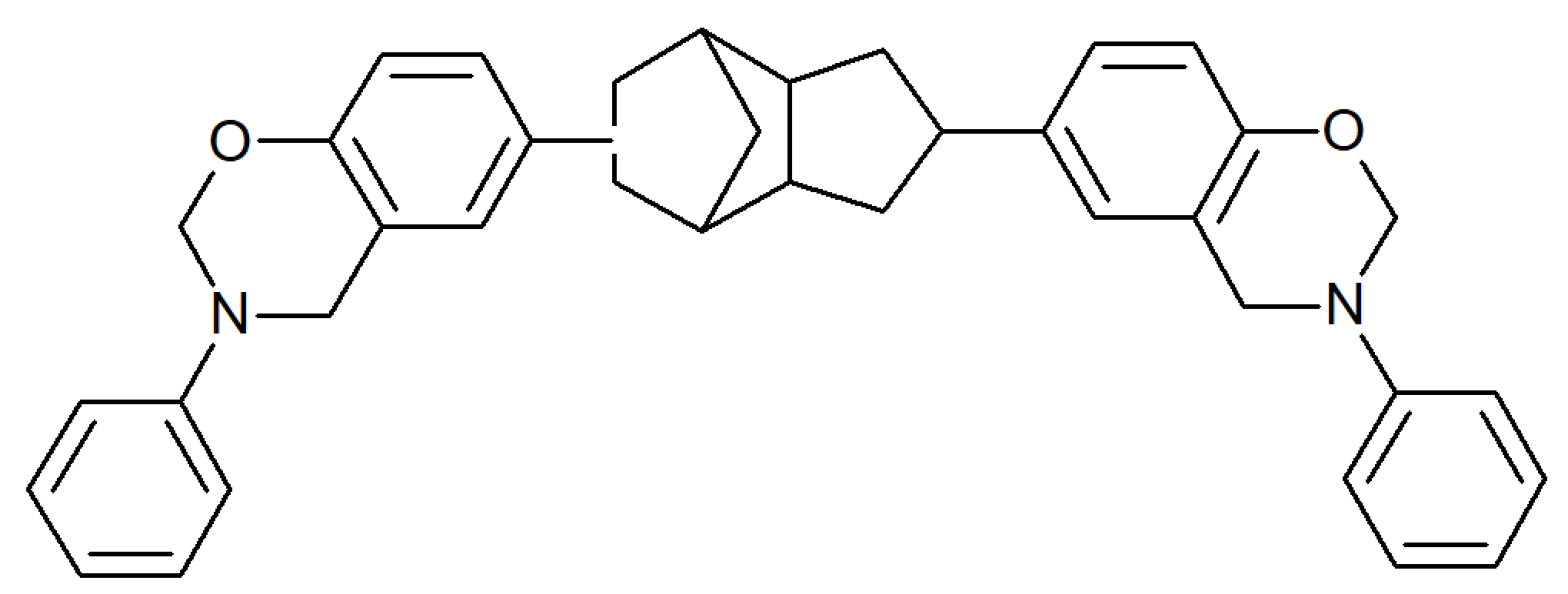Polybenzoxazines
Properties
Polybenzoxazines are a new class of high-performance thermoset resins that resemble conventional phenolics but do not generate volatiles and undergo less shrinkage during cure which results in higher-quality laminates and fiber composites. They are formed by reacting a phenol or bisphenol-A with formaldehyde and an aromatic amine and are cured by thermal ring-opening polymerization:

Typical benzoxazines have a high glass transition temperature (140 - 250°C) and a high decomposition temperature and are, therefore, well suited for high temperature applications. Other useful properties include very low water absorption, very little cure shrinkage, high hydrolytic stability, low dielectric properties, high flame retardance, and outstanding thermal mechanical properties. They are typically stiffer, have better chemical resistance, and less cure shrinkage than bismaleimides, epoxies, and phenolics.1 However, (unmodified) polybenzoxazines also exhibit some deficiencies including high curing temperature and low fracture toughness. These weaknesses can be overcome by blending benzoxazines with toughening agents and other resins.
COMMERCIAL Polybenzoxazines
Polybenzoxazines are a relative new class of halogen-free high-performance plastics. The main manufacturer is Huntsman Advanded Materials who offers a broad range of aromatic benzoxazine resins.
Benzoxazines, when heated, homopolymerize to rigid thermosets. The curing process does not require harsh catalysts and does not generate any volatile by-products but is rather slow. To increase cure speed and to improve processing, benzoxazines are frequently formulated with diluents and accelerators that reduce the melt viscosity, cure temperature and cycle time.
| Benzoxazine | Chemical Structure of Monomer | Trade Name |
| Bisphenol-A based Benzoxazine |
 | ARALDITE® MT 35600 |
| Bisphenol-F based Benzoxazine |
 | ARALDITE® MT 35700 BF-BXZ |
| Thiodiphenol based Benzoxazine |
 | ARALDITE® MT 35900 |
| Dicyclopentadiene based Benzoxazine |
 | ARALDITE® MT 36000 |
Applications
Benzoxazine resins can be used as an alternative to epoxy, phenolic and bismaleimide resins. Because of their superior resistance to chemicals, low flammability, and excellent heat stability, they are an excellent choice for components that are exposed to high temperatures and corrosive media. Examples include chemical and heat resistant coatings, adhesives, prepregs, and encapsulants as well as halogen-free laminates for printed circuit boards. Polybenzoxazines are also used in the automotive and aerospace industries for applications where superior thermal and mechanical properties relative to conventional resins are required.
1Huntsman benzoxazine brochure, "High-Performance Materials for Extreme Environments" (2015)